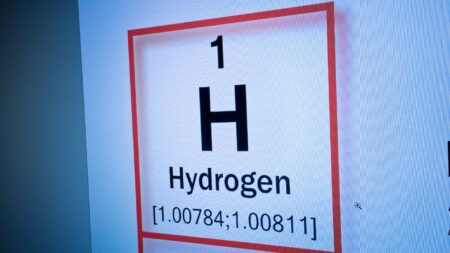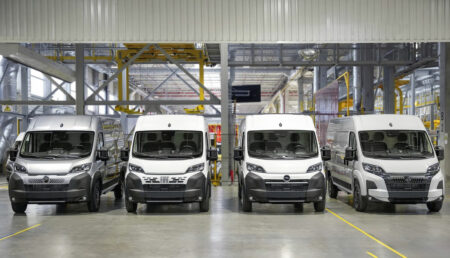The Toyota Mirai, a hydrogen fuel cell electric vehicle initially designed to promote clean energy and reduce carbon emissions, has unexpectedly found itself at the center of military innovation in Ukraine.
Reports have emerged that parts from a wrecked Mirai were repurposed by Ukrainian forces to create an explosive device, highlighting a troubling trend in the militarization of civilian technology.
The Toyota Mirai was not envisioned as a tool of war when it was launched as part of the push towards a hydrogen-based economy. However, Ukrainian forces, facing limitations due to electronic warfare and a lack of advanced military resources, scavenged the vehicle’s hydrogen fuel cell to build an improvised explosive device (IED). This transformation of a symbol of sustainable energy into a weapon of destruction raises questions about the dual-use nature of emerging technologies.
While the ingenuity of Ukrainian forces in repurposing civilian technology for military use is notable, it also underscores the ethical dilemmas surrounding the deployment of such technologies in warfare. The hydrogen fuel cell, originally intended to power a zero-emission vehicle, was converted into a weapon capable of inflicting significant damage. This adaptation illustrates the potential for civilian technologies to be co-opted for military purposes, which could have far-reaching consequences for global perceptions of hydrogen technology.
Furthermore, the use of the Toyota Mirai’s components in this context could tarnish the image of hydrogen as a clean and peaceful energy source. As hydrogen technology continues to develop, there is a growing need for international regulations to prevent its misuse in military applications. The case of the Mirai in Ukraine may serve as a cautionary tale for other industries advancing clean technologies.
Technical Feasibility of Hydrogen-Powered Explosives
The technical aspects of using a hydrogen fuel cell in an explosive device are also worth examining. Hydrogen, while offering significant energy potential, is typically stored under high pressure in tanks that are designed to be extraordinarily resilient. The transformation of the Mirai’s hydrogen tank into a bomb involved the addition of plastic explosives, raising questions about the safety and security measures surrounding hydrogen storage and transport.
In civilian applications, hydrogen tanks are engineered to withstand extreme conditions, including high-impact collisions. However, the Ukrainian forces’ ability to convert this technology into a weapon highlights the vulnerabilities that could be exploited if such materials fall into the wrong hands. This incident should prompt a reevaluation of safety protocols and the potential need for enhanced security measures in the hydrogen energy sector.
A Precedent for Future Conflicts?
The use of the Toyota Mirai in this manner could set a concerning precedent for the use of other civilian technologies in military conflicts. As the boundaries between civilian and military applications of technology continue to blur, it is essential to consider the long-term implications of such practices. The hydrogen industry, in particular, must address these challenges head-on to prevent the misuse of its innovations in warfare.








